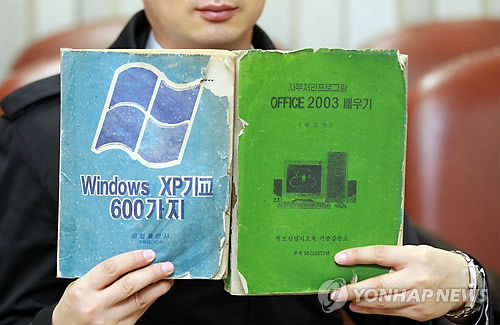2011-03-14 North Korea as a future member of 'region in turmoil'? - Possibilities based on similarities and differences
Measuring the Possibilities: Unlikely, although sharing critical conditions that ignited revolutions in Arab nations
Possibilities of ‘North Korean Jasmine Revolution’ based on similarities and differences between the revolution-flaming countries and North Korea, with a glance on the country’s current IT environment, are discussed here.
Similarities:
-Grievances among young soldiers due to decades of food crisis
-High percentage of the youth among the population
Food crisis has been a chronic, serious problem in North Korea since the 1990s’ infamous famine which had taken about 2.8 million lives. The crisis has caused not only huge annual deaths by starvation but also widespread malnutrition which makes the people extremely prone to illnesses and epidemics that almost always lead to death. According to the Report of 2010 published by Amnesty International, about 9 million people suffered ‘severe food shortages’ in the year. International food aids, including the emergency operation of World Food Program, have dropped violently after the series of nuclear weapon tests.
Working in the national army has been one of the most honored jobs in North Korea. However, the army has failed to escape the wave of nationwide food shortage; there have been brigade-scale disobedience inside the army, including the officially reported one from the 47th brigade in Hwanghae district working on nuclear project, calling for enough food.
Young soldiers in their 20s – 30s, comprising 75% of the army, share critical common grounds; they have never benefited from the national food distribution system, free education and medical system which North Korea once provided before the gross economic downturn in the 1990s. Based on this fact, in addition to exacerbating food crisis, some analysts allege that the level of loyalty toward the ruling party is much weaker than older North Koreans. This changing tendency is also common among non-military youth.
Due to the difficult conditions, the term ‘language treason’, which means unacceptable political expressions, became very frequent and prevalent in the country.(Source) Speaking of overall grievances about poverty, starvation and ‘why the great leader cannot provide us anything’ is now said to be accepted somewhat generously, a sharp contrast to the past.
Differences:
-Lacking tools to ‘bind people together’
-Absence of opposition groups

Two computer books in North Korea, shown by Kim Hng-gwang.
However, many analysts point out that North Korea lacks effective tools to bind the likeminded people together, let alone the absence of social network websites.
In North Korea, about 330 thousand mobile phones have been distributed so far, according to Orascom Telecom Holding S.A.E, an Egyptian company that provides cellular phones to the country.
But this doesn’t mean the actual prevalence of mobile phones inside North Korea, according to Kim Hng-gwang. In an interview with the newspaper Asia Economy, he speculated that the distribution might be restricted mostly to the foreign trade company employees and rich North Korean residents in Japan. He also added that the utter shortage of electricity wouldn’t allow widespread use of mobile phones in the country.
North Korea does have Internet, with a domain name ‘.kp’; but it’s very different from the one that connects the world. ‘Gwangmyong net’, an intranet in North Korea launched since 2000, provides some sort of ‘search tools’. But Kim pointed out that the range of information allowed is strictly restricted within the North Korean websites and a portal site ‘Gwangmyong’. It only permits one-way communication; one can download files from it, but cannot upload or post anything.
Another problem is that there has been no actual political protest or opposition groups worth mentioning in the entire history of North Korea, since it declared itself a sovereign nation in 1948 with the help of Soviet Russia. The dictatorship has been firm over the decades, with zero tolerance to freedom of expression, even including religious ones like giving out Bibles. Torture, arbitrary detention, forced labor, and public executions are common outcomes of any intolerable political expression, also mentioned in the report from Amnesty International.
Elite middle class as the only hope?
Although confirming that North Korean revolution would not be practically possible in short time, analysts generally agree that start of meaningful protest can only be initiated by the Pyongyang – based upper middle class.
They are the only population who can have any access to cell phones and the severely weak Internet. Also, they are highly connected, forming strong inner circles based on each group’s interests.
Robert Collins, former ROK-U.S. Combined Forces Command political analyst answered in a phone interview with the Dong-a Ilbo that frictions leading to collision of the ‘elite class’, instead of people’s protest, have the possibility of North Korean revolution, if there would be any. He specifically mentioned the power struggle between the hard-liners in military and relatively soft-liners in the department of unification in the Labor party.
China would be critical in North Korean revolution
Unrest in China calling for freedom is thought to be one of the most important factors that can invoke similar unrest in North Korea. This is based on the existence of large floating population crossing the border between China and the country, mostly merchants and workers of foreign trade companies, as part of their daily life and various news from outside world seeps in ‘from mouth to mouth’. About 5000 cell phones are reported to be in use in the area.
Kim told in an interview with Seoulnews that Pyongyang citizens particularly wondered about recent news on the North Africa. “In North Korea, ‘Arab world’ is boiled down to Libya and Egypt, both being long-time ‘friendly nations’. ... If movements break out in China calling for democracy, another close ally, the wonder that why such richer countries should demonstrate against the government must grow stronger.”